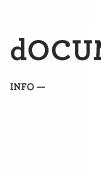Friedrich Kittler's Discourse Networks rests on a materialist comparison of 1800 and 1900 to reveal two contrasting regimes of knowledge or the ways in which data is selected, stored, and processed - from a “kingdom of sense” based on understanding and meaning to one of pattern based on images and algorithms – and this is what he calls “discourse networks” (or in German Aufschreibesysteme or “systems of notation”). For Kittler the concept reveals that the user of technology is somewhat shaped by the technology they use, as for example the way the typewriter altered the nature of discourse and language.
“However, I don't believe in the old thesis that thus the media are prostheses of the body, which amounts to saying, in the beginning was the body, then came the glasses, then suddenly television, and from the television, the computer. The mythology is that everything frees itself from the body, dissolves and submerges in it again, in the sense of emergence and immersion, virtual reality, cinemascope, and hallucination.” (“Technologies of Writing: Interview with Friedrich A. Kittler”. Griffith, Matthew and Herrmann, Susan. New Literary History 27.4 (1996) 731-742. University of Virginia)

















